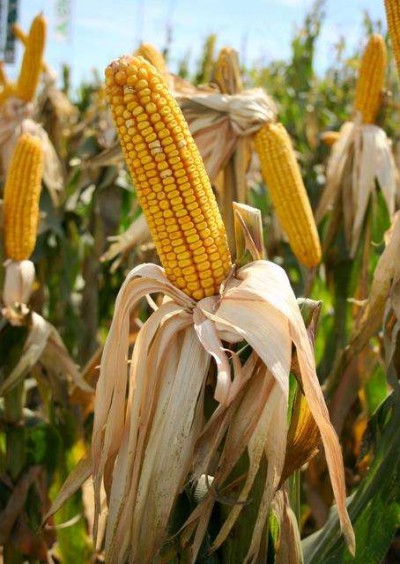|
RICE >> Uses of obedience, OATS >> Rational uses AND CORN >> Natural Uses
 OATS OATS
A very different grain from these, one that is not mentioned in the Word, is Oats. It is a grain that grows quickly in cold climates, is raised more easily than either wheat or rye, and is the favorite food of horses, for whose benefit it is generally cultivated. It is also eaten by invalids, and by some others, especially the Scotch, in whose country it attains the greatest perfection. Now horses represent, as has been shown, a love of understanding; and the Scotch are eminently an intellectual, reasoning people. And when one loves to reason, and see and explain why a thing should be done, then all the reasons for doing it, and doing it just so, invest everything he does, as the ample upper palea invests the oat. Such rational uses he will do, and do them conscientiously and abundantly, in states too cold and poor for gentler works of goodness.
RICE
The grains most common among us are not necessarily the food of all the world. The millions of people dwelling in India, China, and other parts of Asia use little of the food that is important to us, but subsist chiefly upon rice. We, too, use rice as a light, easily digestible food, mostly for children and invalids. Unlike wheat, which contains much of both starch and gluten, rice is composed mostly of starch, which alone is unsuitable for bread. It is therefore seldom ground, but is boiled whole, needing only to have its thick, innutritious hull removed.
The immense multitudes of people who live chiefly upon rice are all childlike. Industrious they are, but their industry is the simple industry of children. They do faithfully what they are told to do, copy minutely the patterns that are given them; they enjoy doing over and over again what they have been taught, but have no strength to originate or to overcome new difficulties. Their satisfaction is the satisfaction of faithful obedience to those whom they love and respect; and to the uses of obedience their rice corresponds. As the rice does not need to be ground, but easily softens by boiling, so neither does the affection of their works need laborious examination; it is simple homogeneous love of obedient serving. To get at the affection, however, we must separate it from the letter of the commands obeyed, which may be held tenaciously, but unintelligently, and which has no share of the kindly affection in it.
The fire by which food is prepared for use we have seen to be our own zealous love for duty or usefulness. Water is the truth of right and wrong. To heat the water is to combine our zeal with the truth which shows our duty. And to boil the rice is to reflect upon the uses of obedience given us to do, with the desire to do our duty rightly, till the innocent delight of them is open to us, and we can easily receive and appropriate it.
MAIZE
 There remains to be studied Indian corn, or maize; the cheapest and most abundantly produced of the grains; which furnishes food for cattle as well as for man; which flourishes upon the coarsest and grossest of manures, producing large, sweet stalks, and flowers with their parts not conjoined as in the other grains in their own little chambers, but separated, the stamens together in a showy tassel, and the pistils in a silky tuft projecting from the ear. There remains to be studied Indian corn, or maize; the cheapest and most abundantly produced of the grains; which furnishes food for cattle as well as for man; which flourishes upon the coarsest and grossest of manures, producing large, sweet stalks, and flowers with their parts not conjoined as in the other grains in their own little chambers, but separated, the stamens together in a showy tassel, and the pistils in a silky tuft projecting from the ear.
This least noble, but most abundant of the useful grains, suggests at once the most common and ignoble of the good motives for work—a desire to earn an honest living and the good things of the world. Certainly works from this motive are done more for the animal than the spiritual part of man; they are stimulated by the coarsest examples and experiences of others; their plans may be large, showy, and pleasant to the natural mind; and there is in them no regard for the sweet satisfaction of the conjunction of every truth with its own goodness, but instead, a love of general approbation and admiration. There are varieties in such works corresponding to the varieties of the grain. Some are done reluctantly and scantily by persons who love their own ease, and work from necessity, to obtain the means of living and of indulgence. Some are done abundantly and well by persons who are eager to “get on” prosperously in the world. And some—the sweetest and softest of them all—are done from a desire to provide comfortably for one’s family; and these, if done faithfully and honestly, have in them good human, though natural, affection. Thus the Lord provides satisfaction for human souls in their daily work even from the lowest of harmless motives. But he offers to all the noblest of satisfactions. He brought down from heaven the purest delight in serving, from the Infinite Divine Love; and this He urges upon us all.
Oh, that my people had hearkened unto me and Israel had walked in my ways! . . . He should have fed them with the finest of the wheat; and with honey out of the rock should I have satisfied thee. (Psalm 81:13, 16)
Author: JOHN WORCESTER 1875
|
|